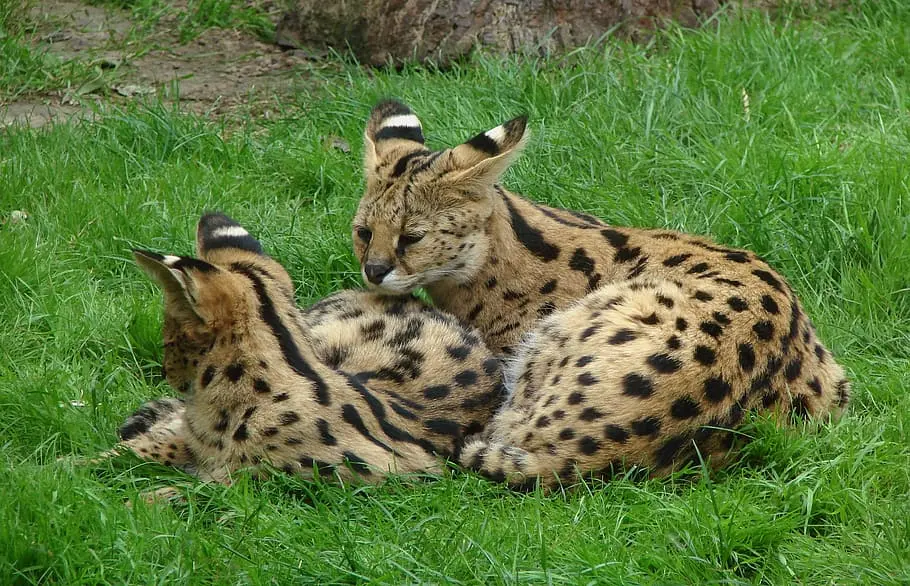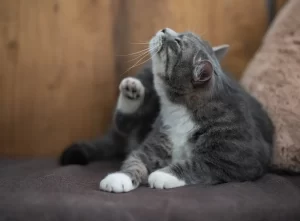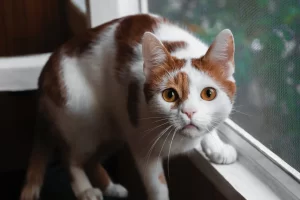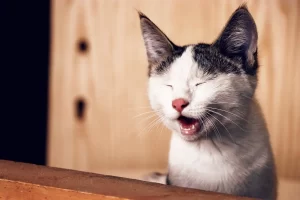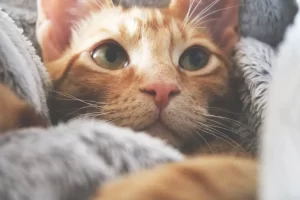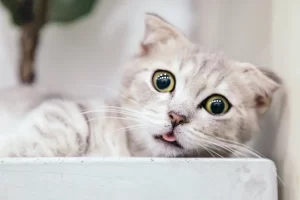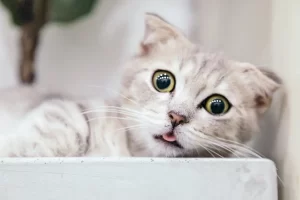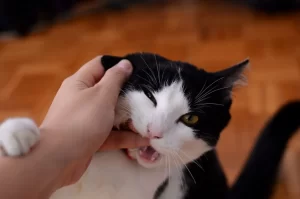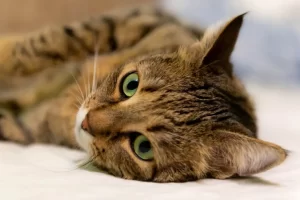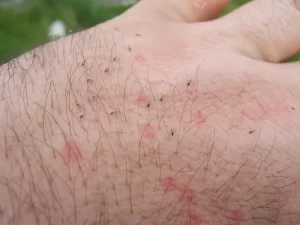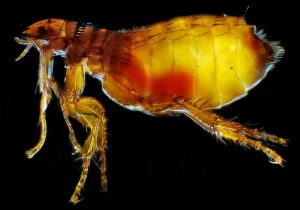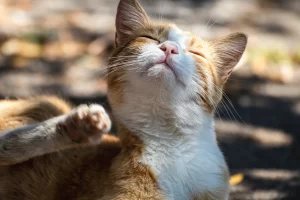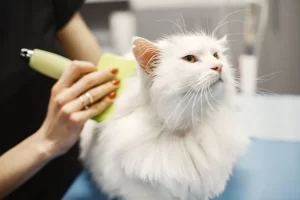Have you ever come across the term “F1 Savannah cat” and wondered what it actually means? If you’re a cat lover or have an interest in exotic cat breeds, the term “F1 Savannah cat” might have piqued your curiosity. In this article, we will delve into the captivating world of F1 Savannah cats and explore their unique characteristics, including their history, physical traits, temperament, legal considerations, care requirements, and frequently asked questions. Whether you’re considering owning an F1 Savannah cat or simply want to satisfy your curiosity about these mesmerizing feline companions, this article will provide you with valuable insights into the world of F1 Savannah cats and what makes them truly special. So, let’s dive in and explore the enchanting world of F1 Savannah cats!
Table of Contents
ToggleIntroduction to F1 Savannah Cats and Their Unique Characteristics
F1 Savannah cats are captivating and exotic feline companions that have gained popularity among cat enthusiasts for their distinctive appearance and intriguing lineage. These hybrid cats are the result of crossing a domestic cat with a serval, a wild African cat known for its striking spotted coat and long legs. The term “F1” refers to the first generation of offspring produced from such a cross, and these cats are considered the closest to their wild ancestors in terms of genetics and physical traits.
One of the most remarkable characteristics of F1 Savannah cats is their appearance. They are known for their tall and lean bodies, resembling the graceful and athletic build of a serval. They can weigh between 13 to 25 pounds for males and 9 to 15 pounds for females, making them larger than the average domestic cat. F1 Savannah cats often have long legs, giving them a lanky appearance, and their heads are usually small in proportion to their bodies. They have large, upright ears with distinctive ocelli, or markings, on the backs of their ears, which are believed to help them communicate in the wild.
The coat of an F1 Savannah cat is another striking feature. They typically have a short coat that can come in a variety of colors, including brown, silver, black, and snow. The coat is often adorned with bold and distinct spots or stripes, which are inherited from their serval ancestors. These coat patterns give F1 Savannah cats a wildcat-like appearance, reminiscent of the majestic serval. However, it’s important to note that coat patterns and colors can vary depending on the individual cat and their specific genetics.
Beyond their physical appearance, F1 Savannah cats also possess unique behavioral traits. They are known for their high intelligence, curiosity, and active nature. These cats are typically very alert and have a strong prey drive, which can result in them being excellent hunters and climbers. They are also known for their playful and energetic personalities, and they enjoy interactive toys and activities that provide them with mental and physical stimulation. F1 Savannah cats are often described as being dog-like in their behavior, as they may be more sociable and outgoing compared to typical domestic cats.
Due to their hybrid status, F1 Savannah cats may also exhibit some behaviors that are reminiscent of their wild ancestors. They may have a strong desire to explore and may require ample space to roam and play. Additionally, they may have unique vocalizations, territorial instincts, and hunting instincts that differentiate them from domestic cats. It’s important for potential owners to understand and appreciate these unique characteristics when considering owning an F1 Savannah cat.
History and Origins of the Savannah Cat Breed: From Wild to Domestic
The history of the Savannah cat breed can be traced back to the 1980s when the idea of crossbreeding domestic cats with servals, a wild African cat, was first explored. The goal was to create a hybrid cat that possessed the striking appearance of a serval, but with a friendly and trainable temperament that could be kept as a companion animal.
The first known successful crossbreeding of a serval and a domestic cat occurred in 1986, when a female serval named Savannah was bred with a male Siamese cat by breeder Judee Frank. The resulting litter of kittens displayed desirable traits, such as a spotted coat and tall ears, along with a more sociable and trainable personality compared to servals. This marked the beginning of the Savannah cat breed.
As breeders continued to experiment with crossbreeding servals with various domestic cat breeds, including Bengals, Egyptian Maus, and Oriental Shorthairs, the Savannah cat breed started to gain recognition and popularity among cat enthusiasts. In 2001, The International Cat Association (TICA) officially recognized the Savannah cat breed, and it has since become one of the most sought-after and unique domestic cat breeds in the world.
The crossbreeding of domestic cats and servals is a complex process that requires careful consideration of genetics, temperament, and health. The goal is to create a hybrid cat that retains the physical traits and beauty of a serval, while also possessing a friendly and manageable temperament that is suitable for living with humans. However, it’s important to note that not all hybrid cats are created equal, and the temperament and behavior of F1 Savannah cats, which are the first generation offspring of a serval and a domestic cat, can vary widely depending on their individual genetics and upbringing.
The crossbreeding of servals and domestic cats for the purpose of creating Savannah cats has also been a topic of controversy and ethical debate. Some critics argue that hybrid cat breeding, including F1 Savannah cats, is unethical due to concerns about the welfare of wildcats, potential health issues in hybrid cats, and the potential for exotic pet trade. Others argue that responsible and ethical breeding practices, along with proper care and management, can ensure the welfare and well-being of Savannah cats.
Physical Appearance of F1 Savannah Cats: Captivating Size, Structure, and Coat Patterns
F1 Savannah cats are known for their striking and exotic appearance, which is reminiscent of their wild ancestor, the serval. They are considered as one of the coolest cats that one can own. They are the first generation offspring of a serval and a domestic cat, resulting in unique physical characteristics that set them apart from other domestic cat breeds.
- Size: F1 Savannah cats are known for their impressive size, with males typically weighing between 15-20 pounds, and females weighing between 10-13 pounds. They have a tall and slender body structure, resembling that of a serval, with long legs and a long neck that contribute to their graceful and athletic appearance.
- Body Structure: F1 Savannah cats have a sleek and muscular body with a deep chest and a short tail. They have a distinctive “Serval-like” head shape, with large, rounded ears that are set high on their head and often have “ocelli” or “thumbprints” on the back, which are markings commonly seen on serval ears. Their eyes are usually large and expressive, with colors ranging from amber to green.
- Coat Patterns: F1 Savannah cats can exhibit a variety of coat patterns, including the classic “spotted” pattern, which resembles the coat of a serval, with bold and distinct spots on a lighter background. The coat pattern can also include “marbling,” which is a unique swirling pattern of contrasting colors. The coat of an F1 Savannah cat can come in a range of colors, including brown, silver, black, and smoke.
- Color Variations: The coat colors of F1 Savannah cats can vary depending on their genetics and lineage. Brown coat color, also known as “golden,” is the most common color variation in F1 Savannah cats, closely resembling the coat color of a serval. Silver coat color, which gives the cat a silvery-gray appearance, is also seen in some F1 Savannah cats, and is highly sought after for its unique and stunning appearance.
It’s important to note that the coat patterns and colors of F1 Savannah cats can vary widely depending on their individual genetics and heritage, as well as environmental factors such as diet and sunlight exposure.
The Cost of Owning an F1 Savannah Cat
The cost of owning an F1 Savannah cat goes beyond the initial acquisition cost and includes ongoing expenses and potential veterinary care. Here are some specific costs to consider:
- Acquisition cost: The acquisition cost of an F1 Savannah cat can vary significantly depending on the breeder, location, and quality of the cat. On average, the cost of an F1 Savannah cat can range from $10,000 to $25,000 or more, with some exceptional cats commanding even higher prices.
- Licensing and permits: Depending on your location, owning an F1 Savannah cat may require licensing and permits. Some states or local jurisdictions may have specific regulations and fees associated with owning exotic animals, including F1 Savannah cats. It’s important to research and comply with all relevant laws and regulations, which may incur additional costs.
- Housing and enclosure: F1 Savannah cats require adequate space and appropriate housing. This may include a large, secure, and enriched indoor enclosure or an outdoor enclosure, depending on your living situation and local regulations. The cost of building or purchasing an appropriate enclosure can vary widely, ranging from a few hundred to several thousand dollars or more.
- Food and nutrition: F1 Savannah cats have specific dietary requirements as obligate carnivores. Their diet may include high-quality raw meat, commercial raw food, or other balanced and nutritionally complete diets. The cost of food and nutrition for an F1 Savannah cat can vary depending on the type and quality of food chosen, ranging from $50 to $200 or more per month.
- Veterinary care: F1 Savannah cats require regular veterinary care, including vaccinations, deworming, flea/tick prevention, dental care, and potential health issues that may arise. Exotic animals, including F1 Savannah cats, may require specialized veterinary care, which can be more expensive compared to regular domestic cats. The cost of veterinary care for an F1 Savannah cat can range from a few hundred to several thousand dollars per year, depending on the health of the cat and any unforeseen medical expenses.
- Enrichment and toys: F1 Savannah cats are highly intelligent and active cats that require mental and physical stimulation. Enrichment toys, scratching posts, climbing structures, and other accessories can provide environmental enrichment and mental stimulation for the cat. The cost of enrichment and toys for an F1 Savannah cat can vary, ranging from $50 to several hundred dollars or more.
- Insurance: Consideration of pet insurance is important for potential veterinary expenses. Pet insurance for exotic animals, including F1 Savannah cats, can vary in cost depending on the coverage, age, and health of the cat. The cost of pet insurance for an F1 Savannah cat can range from $200 to $800 or more per year.
- Emergency fund: It’s crucial to have an emergency fund set aside for unexpected veterinary expenses or other unforeseen circumstances. The amount to set aside will depend on your individual circumstances, but having an emergency fund of at least a few thousand dollars is recommended.
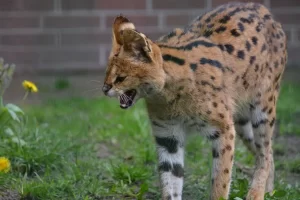
What is the Difference Between f1 f2 f3 f4 and f5 Savannah Cats?
The F1, F2, and F3 in Savannah cats refer to the “filial” or generation level of the cat, which indicates how many generations removed they are from their wild ancestor, the serval. Here are the key differences between F1, F2, and F3 Savannah cats:
- F1 Savannah cats: F1 Savannah cats are the first generation offspring of a serval and a domestic cat. They have the highest percentage of serval genes, typically ranging from 50% to 75%. F1 Savannah cats are the closest in terms of physical appearance and behavior to their wild ancestor, the serval. They are large in size, have distinctive coat patterns, and may exhibit some wild or exotic behaviors.
- F2 Savannah cats: F2 Savannah cats are the second generation offspring of an F1 Savannah cat and a domestic cat. They have a lower percentage of serval genes, typically ranging from 25% to 50%. F2 Savannah cats may still retain some wild or exotic traits, but they are generally more domesticated compared to F1 Savannah cats. They are smaller in size compared to F1 Savannah cats, but may still exhibit some unique coat patterns and behaviors.
- F3 Savannah cats: F3 Savannah cats are the third generation offspring of an F2 Savannah cat and a domestic cat. They have an even lower percentage of serval genes, typically ranging from 12.5% to 25%. F3 Savannah cats are more similar in appearance and behavior to regular domestic cats, although they may still have some slight exotic traits. They are smaller in size compared to F1 and F2 Savannah cats and may have less distinct coat patterns.
- F4 Savannah cats: F4 Savannah cats are the fourth generation offspring of an F3 Savannah cat and a domestic cat. They have an even lower percentage of serval genes, typically ranging from 6.25% to 12.5%. F4 Savannah cats are more similar to regular domestic cats in terms of physical appearance and behavior. They are typically small to medium-sized cats with coat patterns and colors similar to domestic cats. They have a more domesticated temperament and behavior, although they may still retain some unique traits from their Savannah cat heritage.
- F5 Savannah cats: F5 Savannah cats are the fifth generation offspring of an F4 Savannah cat and a domestic cat. They have an even lower percentage of serval genes, typically ranging from 3.12% to 6.25%. F5 Savannah cats are considered to be more similar to regular domestic cats in terms of physical appearance and behavior. They typically have a domesticated temperament and behavior, and their coat patterns and colors are similar to domestic cats.
Comparing F1 Savannah Cats with Domestic Cats and Servals: Physical Traits and Behavior
F1 Savannah cats are a unique hybrid breed that shares both physical traits and behavioral characteristics of both domestic cats and their wild ancestor, the serval. Let’s take a closer look at how F1 Savannah cats compare to domestic cats and servals in terms of their physical traits and behavior.
Behavior:
- Socialization: F1 Savannah cats are known to be highly social and outgoing, much like domestic cats. They can form strong bonds with their human companions and enjoy interactive play and affection. However, due to their wild ancestry, they may also retain some of the independent and aloof traits of servals, and may not be as affectionate or cuddly as domestic cats.
- Activity Level: F1 Savannah cats are known for their high energy and athleticism, which is similar to servals. They are known to be excellent jumpers and climbers, and require ample opportunities for exercise and mental stimulation. Domestic cats can also be energetic, but may not possess the same level of agility and athleticism as F1 Savannah cats.
- Hunting Instincts: F1 Savannah cats, like servals, have strong hunting instincts due to their wild ancestry. They may exhibit behaviors such as stalking, pouncing, and chasing, which are less commonly seen in domestic cats.
- Training and Handling: F1 Savannah cats, like domestic cats, can be trained and handled, but they may require special care and attention due to their wild ancestry. They may have a stronger prey drive and may be more challenging to train compared to domestic cats, which are more accustomed to living with humans.
Diet and Nutrition Requirements for F1 Savannah Cats
F1 Savannah cats, like all cats, are obligate carnivores, which means their diet should consist primarily of meat-based foods. Providing a nutritionally balanced and appropriate diet is crucial for their health and well-being. Here are some important considerations regarding the diet and nutrition requirements for F1 Savannah cats:
- Meat-Based Diet: F1 Savannah cats require a diet that is high in animal-based protein. This can be achieved through commercially available cat food formulated for all life stages, which meets the nutritional requirements of cats. Look for cat food that lists meat or meat-based ingredients as the main ingredients, such as chicken, turkey, beef, or fish. Avoid cat food that contains excessive carbohydrates, fillers, or artificial additives.
- Raw Food Diet: Some owners of F1 Savannah cats choose to feed a raw food diet, also known as a “BARF” (biologically appropriate raw food) diet. This type of diet typically consists of raw meat, bones, and organs, and aims to mimic the natural prey-based diet of wild cats. If considering a raw food diet, it’s essential to research and follow appropriate guidelines for safe and balanced raw feeding to ensure proper nutrition and avoid potential risks associated with handling raw meat.
- Dietary Restrictions: F1 Savannah cats, being a hybrid of a domestic cat and a serval, may have specific dietary restrictions. For example, they may require a higher protein diet compared to traditional domestic cats, and their serval ancestry may result in dietary sensitivities or allergies. It’s crucial to work closely with a veterinarian or a feline nutritionist to develop a suitable diet plan tailored to the individual needs of an F1 Savannah cat.
- Hydration: Like all cats, F1 Savannah cats require access to clean, fresh water at all times. It’s important to provide clean water in a suitable water bowl or fountain and monitor their water intake to ensure proper hydration.
- Feeding Schedule: Establishing a consistent feeding schedule is essential for F1 Savannah cats to maintain a healthy weight and prevent overeating. Feeding them smaller, frequent meals throughout the day is typically recommended, as it mimics their natural feeding behavior in the wild and helps prevent digestive issues.
- Supplements: F1 Savannah cats may require additional supplementation, such as vitamins, minerals, or fatty acids, to meet their nutritional needs. It’s important to consult with a veterinarian or a feline nutritionist before adding any supplements to their diet, as excessive or imbalanced supplementation can be detrimental to their health.
Exercise and Enrichment Needs of F1 Savannah Cats
F1 Savannah cats are highly active and intelligent animals that require regular exercise and mental stimulation to thrive both physically and mentally. Here are some important considerations regarding the exercise and enrichment needs of F1 Savannah cats:
- Physical Exercise: F1 Savannah cats are known for their athleticism and love for physical activity. They require ample opportunities for exercise to maintain their muscular build and prevent obesity. Providing them with opportunities to run, jump, climb, and play is essential. Interactive toys, cat trees, and scratching posts can be beneficial in promoting physical exercise. Regular play sessions with their owners using toys that encourage jumping, chasing, and hunting behaviors can also provide valuable exercise and bonding time.
- Outdoor Enclosures: F1 Savannah cats have a strong instinct to explore and may have a desire to venture outdoors. However, due to their hybrid status and potential legal restrictions, it may not be safe or legal to allow them to roam freely outside. Outdoor enclosures, also known as “catios,” can provide a safe and enriching environment for F1 Savannah cats to experience the outdoors, while preventing them from escaping or encountering potential dangers.
- Environmental Enrichment: F1 Savannah cats are highly intelligent and curious animals that thrive on mental stimulation. Providing them with a stimulating and enriched environment can help prevent boredom and destructive behaviors. This can be achieved through the use of puzzle feeders, treat-dispensing toys, hiding spots, and perches that allow them to observe their surroundings. Providing a variety of toys, such as feather wands, laser pointers, and interactive toys, can also engage their natural hunting instincts and provide mental stimulation.
- Training and Enrichment Activities: F1 Savannah cats are known for their trainable nature and can learn tricks and commands with positive reinforcement training. Training sessions not only provide mental stimulation but also create a bond between the cat and its owner. Teaching them tricks, basic obedience commands, or even participating in agility training can provide mental and physical exercise for F1 Savannah cats while strengthening the human-animal bond.
- Social Interaction: F1 Savannah cats are highly social animals that thrive on human interaction. Regular social interaction and bonding time with their owners are essential for their well-being. Spending quality time with them through play, grooming, and cuddling can help create a strong bond and provide mental stimulation.
Temperament and Behavior Traits of F1 Savannah Cats
F1 Savannah cats are known for their unique temperament and behavior traits, which are influenced by their hybrid heritage and domestic cat ancestry. Here are some key characteristics of F1 Savannah cats:
- Intelligence: F1 Savannah cats are highly intelligent animals. They have a keen sense of curiosity and are known for their problem-solving skills. They are quick learners and can be trained to perform tricks and commands with positive reinforcement training.
- Curiosity: F1 Savannah cats have a natural curiosity that drives them to explore their environment. They are known to be curious and adventurous, often displaying an interest in their surroundings and investigating new objects and places. This makes them highly interactive and engaging pets.
- Energy Levels: F1 Savannah cats are known for their high energy levels. They are active and agile, with a strong desire to play and explore. They require ample opportunities for physical exercise and mental stimulation to fulfill their energy needs and prevent boredom.
- Socialization: F1 Savannah cats are typically social animals that enjoy human interaction. They form strong bonds with their owners and often seek attention and affection. They may exhibit dog-like traits, such as following their owners around the house, playing fetch, and greeting them at the door.
- Exotic Traits: Due to their serval ancestry, F1 Savannah cats may display some exotic traits, such as their ability to leap high, their keen hunting instincts, and their fascination with water. They may also have unique vocalizations and communicate through chirps, purrs, and hisses.
- Strong Personality: F1 Savannah cats are known for their strong personalities. They can be independent, assertive, and confident, requiring an experienced and knowledgeable owner who can understand their needs and provide appropriate guidance and training.
- Potential Challenges: F1 Savannah cats can present some challenges due to their hybrid nature. They may have special dietary requirements, need ample space and stimulation, and may not be suitable for households with small children or other pets. It’s important to research and understand the unique needs and challenges associated with owning an F1 Savannah cat before considering them as a pet.
Health Considerations for F1 Savannah Cats
As with any living creature, F1 Savannah cats can be prone to certain health considerations that potential owners should be aware of. Here are some key health considerations for F1 Savannah cats:
- Genetic and Health Issues: F1 Savannah cats are the result of crossbreeding between domestic cats and servals, which may introduce genetic and health issues. Genetic health issues may include potential genetic mutations, predisposition to certain diseases, or other health concerns associated with hybrid cats. It’s important to research and understand the potential genetic and health issues associated with F1 Savannah cats, and to work with a reputable breeder who conducts proper health testing and screening.
- Diet and Nutrition: F1 Savannah cats have unique dietary requirements as obligate carnivores. Their diet should primarily consist of high-quality, meat-based cat food that meets their specific nutritional needs. Feeding a balanced and appropriate diet is crucial to their overall health and well-being. Overfeeding or feeding inappropriate foods can lead to obesity, dental issues, and other health problems.
- Vaccinations and Preventive Care: Like all cats, F1 Savannah cats require regular vaccinations, parasite prevention, and routine veterinary care. This includes vaccinations against common feline diseases, such as rabies, feline distemper, and feline leukemia, as well as regular check-ups to monitor their overall health and well-being. Preventive care, such as regular grooming, dental care, and parasite prevention, should also be part of their healthcare routine.
- Common Diseases: F1 Savannah cats may be prone to certain health conditions that are commonly seen in both domestic cats and servals. These may include dental issues, heart disease, kidney disease, urinary tract issues, and other common feline health conditions. It’s important to be aware of these potential health issues and work closely with a veterinarian who has experience with exotic cats to monitor and manage their health effectively.
- Stress and Environmental Factors: F1 Savannah cats are highly active and intelligent cats that require mental and physical stimulation. Lack of environmental enrichment, socialization, and mental stimulation can lead to stress-related issues, behavioral problems, and other health concerns. Providing a stimulating and enriched environment, regular playtime, and social interaction can help prevent stress-related health issues in F1 Savannah cats.
Socialization and Interaction of F1 Savannah Cats with Other Pets and Humans
Socialization is a crucial aspect of owning an F1 Savannah cat, as it helps them develop appropriate behaviors and relationships with other pets and humans. Here are some key considerations for socializing F1 Savannah cats:
- Early Socialization: Early socialization is essential for F1 Savannah cats, as it helps them develop positive associations with humans and other pets from a young age. Early experiences with different people, animals, and environments can help them become well-adjusted and confident adult cats.
- Human Interaction: F1 Savannah cats are known for their social nature and usually enjoy interacting with their human companions. They may seek attention, play, and bond with their owners. However, each cat has its unique personality, and some F1 Savannah cats may be more reserved or independent than others. It’s important to respect their individuality and provide them with the appropriate amount of socialization they are comfortable with.
- Interaction with Other Pets: F1 Savannah cats can potentially get along with other pets, including dogs and cats, if introduced properly and given time to adjust. Early and supervised introductions, positive reinforcement, and gradual integration can help them develop harmonious relationships with other pets. However, it’s important to monitor their interactions and intervene if any signs of aggression or stress arise.
- Environmental Enrichment: Providing ample opportunities for environmental enrichment can also aid in the socialization of F1 Savannah cats. This can include providing toys, scratching posts, climbing structures, hiding spots, and other forms of mental and physical stimulation. Enrichment activities can help prevent boredom and reduce stress, promoting healthy social behaviors in F1 Savannah cats.
- Training and Boundaries: F1 Savannah cats can benefit from training and setting appropriate boundaries to ensure safe and positive interactions with humans and other pets. Positive reinforcement training methods, such as clicker training or treat training, can be effective in teaching them basic commands, manners, and behaviors that promote positive social interactions.
Proper Housing and Space Requirements for F1 Savannah Cats
F1 Savannah cats require ample space for their physical and mental well-being. Here are some key considerations for proper housing and space requirements for F1 Savannah cats:
- Indoor Space: F1 Savannah cats should have sufficient indoor space to move around, stretch, exercise, and engage in natural behaviors. This can include providing multiple levels for climbing, jumping, and perching, as well as enough floor space for them to roam and play. Providing hiding spots, scratching posts, and toys can also help promote their mental stimulation and well-being.
- Outdoor Enclosures: If providing an outdoor enclosure or catio for F1 Savannah cats, it should be spacious enough to allow them to move around, climb, jump, and engage in natural behaviors. The enclosure should be securely fenced, providing enough vertical and horizontal space for them to explore and play safely.
- Enclosure Design: The design of the enclosure should take into consideration the natural behaviors and abilities of F1 Savannah cats. This can include providing perches, platforms, hiding spots, and climbing structures that mimic their natural habitat. The enclosure should also have appropriate shelter from the elements, such as shade and sheltered areas, to ensure the comfort and safety of F1 Savannah cats.
- Environmental Enrichment: Both indoor and outdoor spaces should be enriched with various elements that promote the physical and mental well-being of F1 Savannah cats. This can include providing opportunities for climbing, scratching, exploring, hunting, and playing. Toys, scratching posts, hiding spots, and perches can help keep F1 Savannah cats mentally stimulated and engaged in their environment.
Legal Considerations and Regulations for Owning F1 Savannah Cats as Exotic Pets
Owning F1 Savannah cats as pets comes with various legal considerations and regulations, as these cats are considered exotic animals due to their hybrid nature. It’s important for potential owners to be aware of these laws and regulations to ensure compliance and the well-being of the cats. One crucial aspect to consider is that the legality of owning F1 Savannah cats as pets varies from state to state in the United States. Let’s take a closer look at the legal landscape regarding F1 Savannah cats ownership.
In the United States, it is illegal to own F1 Savannah cats as pets in some states due to concerns about public safety and the potential risk to native wildlife. As of 2021, F1 Savannah cats are illegal to own as pets in the following states:
- New York: Owning F1 Savannah cats is prohibited in the state of New York. The New York Department of Environmental Conservation classifies them as wild animals and prohibits their ownership without proper permits.
- Hawaii: The state of Hawaii has strict regulations on owning exotic animals, including F1 Savannah cats. They are not allowed to be imported, bred, or owned as pets in Hawaii due to concerns about their potential impact on the local ecosystem.
- Georgia: In Georgia, owning F1 Savannah cats is prohibited unless the owner holds a valid Wild Animal License issued by the Georgia Department of Natural Resources.
- Massachusetts: F1 Savannah cats are also not allowed to be owned as pets in Massachusetts. The state classifies them as “prohibited mammals” and restricts their ownership.
Note that laws and regulations regarding F1 Savannah cats ownership can change over time, and it’s crucial to stay updated with the current regulations in your state or local area before considering owning an F1 Savannah cat as a pet. Additionally, even in states where it is legal to own F1 Savannah cats, there may be additional permit or licensing requirements, and it’s essential to comply with all relevant laws and regulations to ensure the welfare and safety of both the cat and the community.
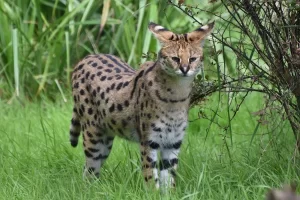
Challenges and Responsibilities of Owning an F1 Savannah Cat
While F1 Savannah cats are unique and captivating pets, they also come with specific challenges and responsibilities that potential owners should be aware of before considering them as pets. Here are some key aspects to consider:
- Socialization: F1 Savannah cats, due to their hybrid nature, may have different socialization needs compared to traditional domestic cats. They may retain some wild instincts from their serval ancestry, which can impact their behavior and interactions with humans and other animals. Proper socialization from an early age is crucial to help them adapt to domestic living, establish a bond with their owners, and reduce the risk of behavior issues.
- Training: F1 Savannah cats are intelligent and active cats that may require training to manage their energy and wild instincts. They can be trained to use a litter box, walk on a leash, and perform basic commands, but early and consistent training is essential. Positive reinforcement methods and patience are recommended for training F1 Savannah cats.
- Healthcare: F1 Savannah cats, like all cats, require routine veterinary care, including vaccinations, deworming, and regular check-ups. However, due to their hybrid nature, they may have specific health considerations that need to be addressed. For example, F1 Savannah cats may be prone to dental issues, digestive problems, and dietary requirements different from traditional domestic cats. Potential owners should be prepared for potential health challenges and be willing to provide the necessary veterinary care.
- Environmental Enrichment: F1 Savannah cats are highly active and need ample opportunities for exercise, play, and mental stimulation. Providing an enriched environment with climbing structures, toys, and playtime with their owner is important to fulfill their physical and mental needs.
- Legal Considerations: As discussed earlier, owning F1 Savannah cats may be subject to legal restrictions and regulations in certain states or localities. Potential owners should be aware of these laws and comply with all relevant regulations to ensure the legality and welfare of their F1 Savannah cat.
- Time and Commitment: F1 Savannah cats require a significant time commitment from their owners. They thrive on human interaction and may require more attention and engagement compared to traditional domestic cats. Potential owners should be prepared to dedicate time and effort to meet their needs and provide a stimulating and enriching environment.
- Responsible Ownership: Owning an F1 Savannah cat is a significant responsibility. They are unique animals with specific needs, and it’s important to be a responsible owner by providing proper care, nutrition, and enrichment, as well as adhering to all legal requirements and regulations.
Finding a Reputable Breeder or Rescue Organization for F1 Savannah Cats
When considering owning an F1 Savannah cat, it’s essential to find a reputable breeder or rescue organization to ensure the well-being and health of the cat. Here are some practical tips for finding a reputable breeder or rescue organization for F1 Savannah cats:
- Do thorough research: Start by conducting thorough research on F1 Savannah cat breeders or rescue organizations in your area or beyond. Look for breeders or organizations with a good reputation, positive reviews, and a track record of responsible and ethical breeding or rescue practices.
- Check credentials: Verify if the breeder or rescue organization is registered with recognized and reputable organizations such as The International Cat Association (TICA), The Fédération Internationale Féline (FIFe), or other reputable cat associations. This can provide assurance that the breeder or rescue organization adheres to certain standards and guidelines.
- Visit in person: Whenever possible, visit the breeder or rescue organization in person to assess the living conditions, cleanliness, and overall well-being of the cats. Observe how the cats are cared for, their living environment, and their temperament. A responsible breeder or rescue organization should provide a clean, safe, and healthy environment for their cats.
- Ask for health records: Request complete health records of the F1 Savannah cat, including vaccination history, deworming, and any other medical treatments or tests conducted. A reputable breeder or rescue organization should be able to provide comprehensive health records and be transparent about any potential health issues or concerns.
- Inquire about socialization and temperament: F1 Savannah cats require proper socialization and handling from an early age to develop good temperament and behavior. Ask the breeder or rescue organization about their socialization practices, handling techniques, and experiences with socializing F1 Savannah cats. A reputable breeder or rescue organization should prioritize socialization and temperament development in their cats.
- Ask for references: Request references from previous buyers or adopters who have acquired cats from the breeder or rescue organization. Contact these references and inquire about their experience with the breeder or rescue organization, the health and temperament of the cat they acquired, and any other relevant information.
- Review contracts and policies: Carefully review any contracts or policies provided by the breeder or rescue organization. Ensure that they are clear, transparent, and include provisions for health guarantees, return policies, and other important aspects of cat ownership.
- Avoid red flags: Be cautious of breeders or rescue organizations that exhibit red flags, such as poor communication, lack of transparency, unwillingness to provide health records or references, overcrowded or unsanitary living conditions, and questionable breeding practices. If something seems off or suspicious, it’s best to look elsewhere for a reputable breeder or rescue organization.
Frequently Asked Questions (FAQs) about F1 Savannah Cats
What is an F1 Savannah cat?
An F1 Savannah cat is the first generation offspring of a serval (a wild African cat) and a domestic cat. It is the highest percentage of serval genes among all generations of Savannah cats.
What are the unique characteristics of F1 Savannah cats?
F1 Savannah cats are known for their large size, tall ears, long legs, spotted coat patterns, and exotic appearance resembling their serval ancestors.
What are the legal considerations of owning an F1 Savannah cat?
Ownership of F1 Savannah cats may be regulated or prohibited in certain areas due to their hybrid status. It is important to research and comply with local laws and regulations before owning an F1 Savannah cat.
What are the typical costs associated with owning an F1 Savannah cat?
The cost of acquiring an F1 Savannah cat can vary greatly and may include purchase price, transportation, and legal fees. Ongoing expenses may include food, litter, grooming, and veterinary care.
What are the temperament and behavior traits of F1 Savannah cats?
F1 Savannah cats are known for their high intelligence, curiosity, and energy levels. They may exhibit wild cat-like behaviors and require early socialization, training, and mental stimulation.
What are the dietary requirements of F1 Savannah cats?
F1 Savannah cats are obligate carnivores and require a high-quality, meat-based diet. It is important to provide them with a balanced and appropriate diet to meet their nutritional needs.
What are the exercise and enrichment needs of F1 Savannah cats?
F1 Savannah cats are active and require regular exercise and enrichment activities to prevent boredom and promote physical and mental well-being. This may include playtime, toys, climbing opportunities, and outdoor enclosures.
What are the potential health issues of F1 Savannah cats?
F1 Savannah cats may be susceptible to certain genetic and health issues due to their hybrid nature. These may include dental issues, urinary tract problems, and reproductive issues. Regular veterinary care and monitoring are essential.
What is the size of an F1 Savannah cat?
F1 Savannah cats can be large in size, with males typically ranging from 13-20 pounds and females ranging from 8-13 pounds, although size can vary depending on individual genetics and environmental factors.
What is the lifespan of an F1 Savannah cat?
The lifespan of an F1 Savannah cat is similar to that of domestic cats, ranging from 12-20 years or more with proper care and attention to their health and well-being.
What are the coat patterns and colors of F1 Savannah cats?
F1 Savannah cats can have various coat patterns, including spotted, marbled, and tabby patterns, with color variations such as brown, silver, and black. Coat patterns and colors may resemble those of their serval ancestors.
What are the space and housing requirements for F1 Savannah cats?
F1 Savannah cats require ample space for exercise and play, and a secure and enriched environment. This may include indoor and outdoor enclosures or catteries, and proper safety measures to prevent escapes or accidents.
What is the socialization process for F1 Savannah cats?
F1 Savannah cats require early socialization to humans, other pets, and the environment to help them adapt to their domestic surroundings. This may involve gradual exposure, positive reinforcement, and patience.
What are the grooming needs of F1 Savannah cats?
F1 Savannah cats generally have low grooming needs, as their short coat is easy to maintain. Regular brushing, nail trimming, and dental care are recommended, along with occasional baths and ear cleaning.
What are the safety considerations for owning an F1 Savannah cat?
F1 Savannah cats may have wild instincts and require appropriate safety measures, such as secure enclosures, escape-proof fencing, and supervision during outdoor activities. They should also be kept up-to-date on vaccinations and preventive medications.
What are the personality traits of F1 Savannah cats compared to other generations?
F1 Savannah cats may exhibit more wild cat-like behaviors compared to later generations, as they have a higher percentage of serval genes. They may be more independent, active, and demanding in terms of socialization and training.
What are the exercise options for F1 Savannah cats?
F1 Savannah cats benefit from both physical and mental exercise. This may include playtime with toys, climbing structures, puzzle toys, and outdoor enclosures to provide them with opportunities to satisfy their natural instincts and curiosity.
What are the challenges and responsibilities of owning an F1 Savannah cat?
F1 Savannah cats require dedicated care, socialization, and supervision due to their wild ancestry. They may have unique health considerations, require specialized diets, and have legal and housing restrictions in certain areas.
What are the potential legal issues associated with owning an F1 Savannah cat?
Ownership of F1 Savannah cats may be regulated or prohibited in certain regions or jurisdictions due to their hybrid status. It is important to research and comply with local laws and regulations to ensure legal ownership.
What are the alternative options to owning an F1 Savannah cat?
If owning an F1 Savannah cat is not feasible, there are other generations of Savannah cats (such as F2, F3, etc.) or domestic cat breeds that may provide similar traits and characteristics without the legal and care complexities associated with F1 Savannah catsTop of Form

